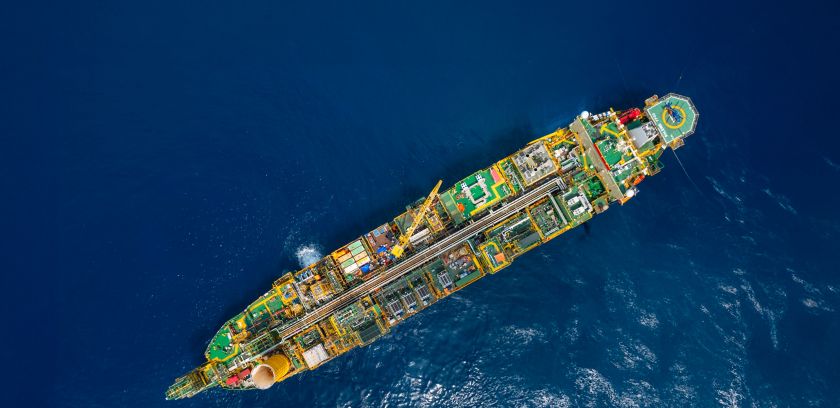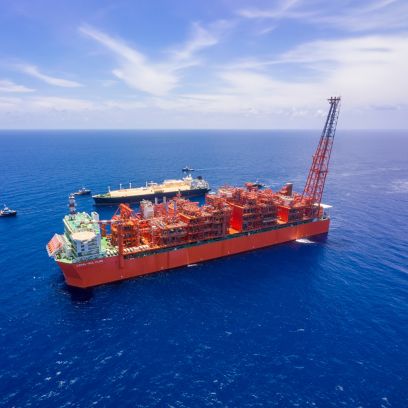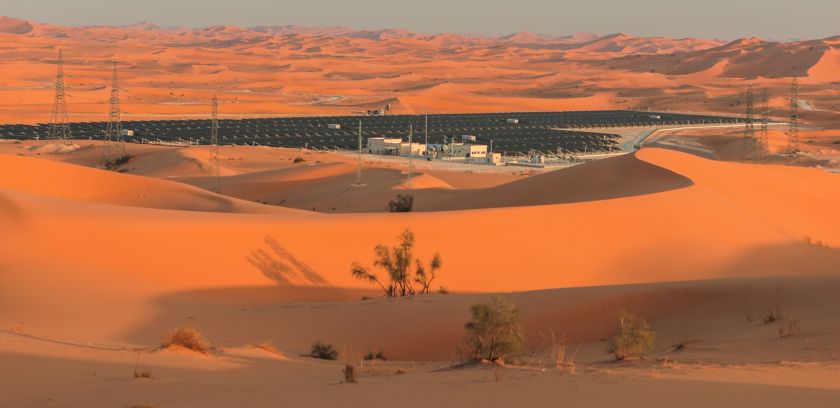Towards a new energy
Visit the agri-feedstock projects that contribute to the increasingly sustainable supply of our biorefineries.
Interactive specialWe contribute to the security of natural gas supply and the energy transition by leveraging local resources in the countries we work in.

We have been present in Africa since the 1950s with the goal of developing its abundant resources and forging partnerships that ensure the security of natural gas supplies while addressing the challenges of the energy transition. Increasingly strategic in the international context - due to its resources, rapidly growing population and market, to the role Africa can play in the global decarbonization process and to its growing diplomatic influence- the African continent aims to strengthen its integration into global value chains to achieve its growth and socio-economic development ambitions.
Our activities in the countries where we are present cover traditional energy sources, renewables, and bioenergy, in line with our energy diversification strategy to achieve the Net Zero target by 2050.
We are committed to meeting local needs and continuously contributing to sustainable development through highly innovative initiatives. In addition to promoting energy access across the continent, we are engaged in local development projects, with a particular focus on sustainable and inclusive growth in the agricultural sector.


The discovery of the Zohr gas field and the start of production make a major contribution to Egypt's energy security.
We are implementing primary healthcare initiatives in the Emirates and Al Garabaa districts, along with providing training programmes for youth.
We are the main international company in Algeria. The country has assumed a central role with the doubling of gas supplies. At our production facilities in the Sahara desert, Eni has developed an effective research and production model for solar energy, thus contributing to reducing the carbon footprint of its activities.
Kenya was the first county where Eni developed an innovative project to produce vegetable oil for biorefining, integrating farmers' income and including the country into the sustainable mobility value chain.
We are also implementing a water access project to improve sanitation access and supporting the E4Impact Accelerator, a business acceleration programme.
The OCTP project in Ghana has allowed all non-associated gas production in the country to be allocated for domestic consumption, providing a safe, stable, and reliable energy source.
We have also developed programmes to promote and diversify small businesses through the Livelihood Restoration Plan, provided agricultural training with Okuafo Pa, and launched initiatives to improve education in schools.
All associated gas from the Baleine field is used for domestic consumption, promoting energy access and strengthening Côte d'Ivoire's role as a regional energy hub. Vegetable oil production for biorefining has also started in the country.
We contribute to promoting access to education and healthcare and are carrying out projects for the conservation, restoration and management of forests and savannahs as part of the REDD+ scheme (Reducing Emissions from Deforestation and forest Degradation), the programme for the protection of the forest heritage defined by the United Nations. We also develop the improved cooking systems project through the Clean Cooking Programme.
We have operated continuously in Libya, even during periods of significant instability. Currently, we are helping to stabilize the country and are the main gas producer.
The gas produced in the Republic of Congo fuels the Centrale Electrique du Congo, which holds 70% of the country's power generation capacity. Gas in excess of national needs is allocated to the Congo LNG project, which will contribute to the diversification of Europe's energy supplies.
We also support initiatives to promote culture and the arts, programmes to improve access to primary education and the development of micro-enterprises.
In Mozambique, Coral South represents the world's first ultra-deepwater LNG project, transforming the country into an LNG exporter with a significant impact on its GDP. LNG production contributes to Europe's energy security.
We are also supporting the growth of local entrepreneurship and various education projects to improve the education system. We have reached ten thousand households through the Clean Cooking Programme, promoting improved cooking systems.
For forest protection and conservation, the Great Limpopo project is currently underway.
Initiated in partnership with Biocarbon Partner BCP, it is the first to have been awarded a REDD+ licence.
Eni is developing a series of initiatives in Rwanda in the fields of agriculture, forest ecosystem protection, technology, and health. In recent years, the country has become a regional and international innovation hub with a growing focus on the energy transition.
In Nigeria, much of associated gas is used to generate electricity for local communities, including through power plants built by Eni. The Green River Project for economic diversification has trained nearly 40,000 farmers and supported 265 cooperatives.
In Angola, Azule, a joint venture combining Eni and BP assets, is the leading producer in the country and it leads the New Gas Consortium, the country's first non-associated gas player, which aims to increase the country's gas supply and develop the gas value chain. With ENE Angola, Eni is actively involved in agribusiness projects for the production of biofuels and in carbon offset initiatives.
Eni is present in Tunisia with exploration activities and renewable energy projects.
Eni is present in Namibia with exploration activities.
We currently operate in Africa with around three thousand employees, mostly local, in thirteen countries, strengthening our partnerships with a collaborative approach that plays a key role in addressing the energy crisis. This approach has allowed us to quickly identify supply opportunities, ensuring Italy and Europe a secure and stable supply of natural gas , one of the fossil fuels with the lowest carbon footprint and a bridge vector in the decarbonization process. More than half of Eni's production and about half of its reserves are located in Africa, and much of the gas produced is destined for local markets, ensuring access to energy and contributing to economic growth.
The Baleine project in Côte d'Ivoire, characterized by a fast-track approach (parallel project phases), strengthens the country's role as a regional energy hub for neighbouring countries. We have also established an example of Eni's satellite model with the launch of the Azule Energy joint venture in Angola. This distinctive approach is designed to unlock value and accelerate the decarbonization process through the exploration, development and production of hydrocarbons, with a focus on energy sustainability and renewables.
We are also integrating African countries into the biofuels value chain (in Kenya, Mozambique, Congo, Côte d'Ivoire and Rwanda. among others) and investing in the creation of new energy research centres (such as Oyo in Congo and Solar Lab in Algeria). We are powering water wells with photovoltaic systems (e.g. in Nigeria and Congo), we are distributing energy-efficient cookstoves through the Clean Cooking Programme (e.g. in Mozambique, Congo, Côte d'Ivoire, Madagascar, Rwanda, Angola), and investing in education programmes focused on the energy sector and on professional upskilling (e.g. in Egypt, Mozambique, and Côte d'Ivoire).
Africa's destiny is intertwined with ours. We have always invested in the continent to create long-term shared value, pursuing a strategic vision that offers opportunities for both Africa and Europe.
Claudio Descalzi
CEO of Eni


It is the largest hydrocarbon discovery in the country and it will also be the first net-zero development in Africa.

The project in the country’s offshore contributes to security of supply through high-technology facilities.

Interventions for the development of territories, to improve the living conditions of local communities.

We have introduced photovoltaics to power production activities with renewable energy.
Visit the agri-feedstock projects that contribute to the increasingly sustainable supply of our biorefineries.
Interactive special